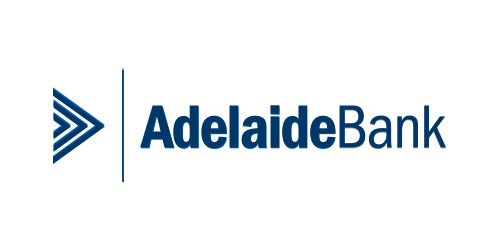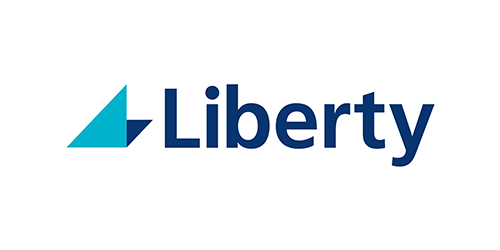Do you want to join 66% of Australians and own your own home? Homeownership can provide your family the security you need in times of uncertainty. Feel proud and satisfied that you have made the right choice for yourself and your family.
Taking on a mortgage is also a significant commitment and should not be entered into lightly. With repayment terms lasting as long as 35 years, many Australians will spend most of their adult life paying mortgage instalments.
How much would your mortgage repayments be each month? Using the Lendstreet Repayment Calculator, you can find out today how much you could be paying.
What is a Home Loan Repayment?
So you have found your dream home, and your mortgage broker has found you a great deal with a lender. But what does that mean for you and your monthly outgoings?
When agreeing to a home loan, the lender is agreeing to lend you a fixed amount of money. You must pay the lender back the money you borrowed over a set period, plus additional interest. These amounts are calculated and divided into a monthly home loan repayment figure.
This is the amount you must pay back to the lender and factor into your monthly outgoings budget. If you default on your home loan repayments, your lender could repossess your home.
Your builder, architect, council, surveyors, and other contractors are all a part of your new home construction. As such, for the approval of a construction home loan, you may be required to provide additional documentation. Further terms and conditions may also apply if you are an owner-builder.
Principal and Interest Loan Repayments
Your home loan repayment comprises a combination of principal and interest loan repayments.
Your principal repayment amount refers directly to the amount borrowed from the lender. Each time you repay the principal, the amount you borrowed decreases across the loan term.
Your interest repayment amounts are the portion of your monthly home loan repayment that consists solely of the lender’s interest rate. None of this amount is deducted from the amount you originally borrowed to buy your house.
Most homeowners will decide to pay both the principal and interest repayments per month. Doing this ensures that the amount you owe the lender decreases over time.
Paying Interest Only Repayments
Sometimes, a homeowner may choose to only pay the interest repayment amount of the home loan. The lender must agree to this and will usually only agree for a set period.
In this situation, the lender receives their interest, but you never decrease the amount of money you originally borrowed. Paying interest-only repayments can be a good solution in the short term if you want to considerably reduce your monthly outgoings.
However, if you decide to sell your home, you will need to rely on a growing property market to increase your equity. In a nightmare scenario, a declining property market may result in your property entering negative equity, limiting selling potential. You may lose your deposit and may even owe your lender an amount if you desperately have to sell your home.
Types of Home Loan Interest
Interest is important to your lender. When you pay the interest on a loan, they make money. It’s as simple as that!
When you pay principal repayment amounts to your lender, you merely pay back what you borrowed. The interest repayment sum goes straight to the lender and is their money.
There are different types of interest rates for you to consider for your home loan:
- Fixed interest rates enable you to pay the same monthly amount so you know what to expect.
- Variable interest rates can mean you pay different amounts monthly depending on the RBA’s cash rate and your lender’s interest rate.
- A split rate involves paying a portion of the interest at a fixed amount and the remainder at a variable rate.
A fixed interest rate is great for budgeting. You can curtail a specific amount of money for your interest repayments monthly and know how much you need to pay. A fixed rate loan offers you certainty for your monthly repayments.
Variable interest rates are unpredictable. Depending on the lender’s interest rates and the RBA’s movements in cash flow, you could pay more or less interest. Your monthly repayments could be more than you budgeted for!
If these rates are favourable, however, you could pay less interest than if you were on a fixed rate. However, if these rates increase significantly, you could pay much more than a fixed interest rate.
A split rate covers both grounds. You can fix a portion of your interest repayment so you can budget for that amount monthly. The remainder of the interest repayment is variable and will move in line with RBA’s cash rate and lender interest rates.
A split rate provides you with the flexibility to enjoy lower rates without complete unpredictability. Mortgage repayments could offer you better benefits with a split rate.
When should I make a repayment?
Before agreeing to the terms of your home loan, you need to know how often your lender expects repayments.
Usually, mortgage repayments are required monthly on a specific date, although some lenders may agree to different terms. You could ask your lender whether you can pay mortgage repayments fortnightly if that better suits your finances.
Ask an experienced mortgage broker today about the best lender home loan terms for your circumstances.
How can I make a repayment?
Making a repayment is quick and easy, although it will ultimately depend on the lender. The best way to make repayments is to set up a direct debit. You can make sure that you never miss a repayment and that each repayment is on time and effortlessly completed.
Alternatively, you could ask your lender whether they accept payments over the phone or through an online portal. Perhaps your lender has a branch local to you, and you could pay repayments in person?
Paying repayments using a method other than direct debit may place undue pressure on you to pay on time. What if you are ill or on holiday when a repayment is due? What if you forget to pay the instalment? Paying by direct debit is the best option to ensure that every repayment is paid on time.
Another great option to consider is to pay your repayments via SmartPay. Offered by some lenders, SmartPay enables your income to be deposited into your home loan account. You will never miss a repayment, making sure that arrears are not charged and your credit history is unblemished. You can then transfer a sum of money out of your home loan account to pay other bills.
Missing a home loan repayment
You may be charged an additional fee if your repayment is classed as being late. Your credit history could also be tarnished.
You will be able to catch up with any missed repayments, and your lender will not consider repossession through one late instalment.
However, do not take out additional debt to pay your home loan arrears. You may find yourself in greater debt levels and will effectively pay double interest on that sum of money.
What if I can’t catch up with repayments?
If you enter financial difficulties, life can be tough. It may feel like you are falling into a deep hole that you cannot climb out of. Lenders keep calling, and repayments keep mounting higher and higher. Arrears keep building, and more money is expected to be paid.
Depending on your lender and loan terms, you may be able to switch to interest-only repayments for a limited time. This may help you get back on top of your repayments to find yourself in a better situation.
You may be able to pay for lenders’ mortgage insurance or LMI. This provides coverage for you if you are unable to meet repayments.
Visit Lendstreet to access a range of resources to help you if you are in a difficult financial situation. You could use our Budget Planner or Expense Planner tools to help you plan your way to happier days.
What if I default?
Sometimes, planning cannot help you escape financial hardship. If not enough money is coming into your household, you cannot pay the repayments. This could happen to anyone if you lose your job as a result of loss or injury.
Missing one or two repayments will not immediately result in loan default. You can still make up the missed repayment and get your home loan back on track. However, it will signal to your lender that you are facing financial difficulty.
Missing repeated repayments and not engaging successfully with your lender to rectify the problem will result in a default. If you find yourself in this situation, seek immediate legal advice. Accessing lenders’ mortgage insurance can cover your repayments if you lose your job and cannot pay.
Your lender MUST provide you with ample opportunity to pay back the missed repayments that you owe. Seeking legal advice will ensure that your lender gives you every opportunity and type of help.
If no solution is offered, your home may be repossessed. Your lender will issue a Default Notice, allowing you 30 days to clear the arrears you owe.
If you do not make these repayments during the 30-day timespan, a Statement of Claim will be sought by the lender. The lender will begin legal proceedings to repossess your home.
The repossession of a property is a significant step. You should avoid this at all costs. Not only will you and your family lose their home and have nowhere to live, but you will also lose any equity in the property. This includes the deposit that you saved up for across so many years.
Other options may be available to save your home from repossession. Speak to a Lendstreet professional today about options to refinance or take out a personal loan.
How can I reduce my home loan repayments?
There are some ways that you can reduce your home loan repayments.
Offset Account
Saving your additional money in an offset account can help to ‘offset’ your total loan amount owed. This method reduces the interest you pay, but how does an offset account work?
Placing some savings into an offset account enables the home loan to pretend that that amount is part of the repayment amount. You then pay interest on a reduced amount.
For example, if you have a $650,000 home loan and $100,000 in an offset account, what interest is payable? In these circumstances, you will only pay interest on $550,000, saving yourself a good deal of money!
Refinancing
Even though your loan term will cover up to 35 years, you do not have to remain with the original deal. Interest rates and credit history change continuously, so search for up-to-date loan deals to reduce your repayments.
You may be able to refinance your home loan to a lower interest rate, favouring your improved credit rating. This will enable you to pay a much lower monthly repayment amount and reduced interest repayments over the loan term.
A mortgage broker can look for the best deals for you to reduce your repayments today! Use Lendstreet’s Refinance Calculator today for an immediate quote and contact an expert broker for more details.
Paying your loan quicker
Paying your loan quicker will mean that less interest is payable over time. You could try to pay regular lump sums of additional repayments to clear your debt faster. This will save you money and make your repayments cheaper towards the end of the loan term.
You will have to check with your lender and your loan terms, however, before trying to pay additional loan repayments.
A variable rate home loan may be better if you want to pay your mortgage sooner. Some lenders may allow you to redraw overpayments on a variable rate loan at a later date. A fee may be charged for this, although it is a great option to have available.
A fixed-rate home loan may have a limit as to how much extra money you are allowed to pay off each year. There may also be a fee to pay, depending on your loan terms.
The best compromise may be a split-rate home loan so that you receive the best of both worlds! You have the security of a fixed rate for part of the loan amount and a variable rate for the remainder. This winning combination offers you greater flexibility.
Repayment Holidays
Depending on your lender, you may be able to take a repayment holiday. A repayment holiday may allow you to stop repaying your mortgage repayments for a set time, up to 12 months. Your lender must agree to this in advance.
A repayment holiday can help you to have a break from paying large repayment amounts. You may be able to pay other priority bills and improve your financial situation during the repayment holiday. Or, you may opt to take a repayment holiday if you are ill or on maternity leave.
Some lenders may call this a repayment pause, but it is the same in principle. At the end of the repayment holiday, or repayment pause, your lender will increase your repayment amounts.
Overall, the lender will not want to lose out, so you should factor in subsequent increases before agreeing.
A Home Loan Repayment Calculator
Having children is expensive and your lender understands that! So, if you have one or more children, lenders will judge this as an ongoing expense.
Home loan applicants with children will have higher expenses and less disposable income than applicants without children.
How much can I borrow?
Using a Repayment Calculator at Lendstreet will give you an idea as to how much your monthly repayments will be. Arming yourself with as much information as possible before seeking a home loan ensures that you can prepare for any circumstance.
What is a Repayment Calculator?
A Repayment Calculator will detail the amount you want to borrow and the type of loan.
You can choose the home loan term, the interest rate, and the repayment frequency and type. You can calculate the repayment amount, the interest rate, and total interest payable within seconds.
Adjust the information entered to see instantly how the repayment amounts can change. Change the home loan term and see what difference extra repayments will make!
Find the perfect loan, loan term, and repayment amounts for your situation.
How to use a Repayment Calculator
Choose Lendstreet’s Repayment Calculator.
Once you have arrived on the Repayment Calculator page, enter the following information:
- How much do you want to borrow? You can alter this amount from $10,000 to $10,000,000.
- Loan type. You can choose a range of fixed-term options, a basic variable with no offset option, or variable with offset, or a professional package.
- Loan Term. You can tailor your loan term to suit your circumstances for up to 40 years.
- Interest Rate. Depending on which product you choose, the interest rate will default accordingly.
- Repayment frequency. You can choose to make repayments either weekly, fortnightly, or monthly. You may find that shorter repayments will mean less interest payable.
- Repayment type. Do you want to pay your principal repayment and interest repayment amounts together? Or, do you want to pay interest only?
Repayment Calculator Results
Once you have entered all the necessary information, you will immediately see your estimated home loan repayments. You can see the loan term, your interest rate, and the total interest you will pay in total.
The visual graphic at the bottom of the calculation shows your year-on-year repayment progress. You can determine how much your outstanding principal and interest repayments are at each yearly interval.
Click to choose the repayment chart and visualise the decreased amounts of principal and interest repayments owed year after year. There is also a loan amortisation table to see the precise amounts payable each year.
For example, if you want to borrow $750,000 across 35 years on a basic variable no offset deal, what will you pay?
If paying principal and interest instalments monthly, you will be given a 2.10% interest rate. This will result in your monthly repayments totalling $2,524, paying a total of $309,717 in interest over 35 years.
Your Lendstreet Repayment Calculator also holds an additional feature, however. You can click the tab and enter extra repayments paid monthly. Remember that paying extra repayments off your loan will reduce your interest considerably.
In the example above, if you pay $500 per month in extra repayments, you could save $75,162 in interest. You could reduce your loan term by 7 years and 10 months!
If you can pay extra repayments of $1,000 monthly, you could save $120,590 in interest! This will also reduce your loan term by a significant $12 years and 9 months.
Ask your mortgage professional at Lendstreet today how you can reduce your loan term and decrease the total loan interest! You can ask your broker expert for comparison rate data and the latest interest rate impact on the variable rate home loan.
How can I increase my borrowing power?
Use the Lendstreet Repayment Calculator for up-to-date home loan rates and information. Find out today how much a home loan could cost you per month! Instantly, you can see typical monthly loan repayments and your accrued loan balance.
You can also work out how much you should pay in additional instalments to save time and money!
Your next step is to contact a Lendstreet broker expert who will advise you on what to do next. They will access the latest deals to search for the best options for you and your circumstances. Contact Lendstreet today!
To discover how much you could borrow for a property purchase, use Lendstreet’s Borrowing Power calculator today!
Simply enter your information into the calculator! You will immediately see the monthly repayments, the interest rate, and the total amount you can borrow. Allow yourself to make an informed real estate decision and achieve the best loan deal for you!
FAQs
Why should I use a home loan repayment calculator?
With rising property prices, taking out a home loan is expensive and risky. You may think you cannot afford home loan repayments based on your household income.
Using a repayment calculator helps to inform you. You can assess the repayment amounts on-screen and adjust the settings and information entered to determine which option is best for you.
Using Lendstreet’s Repayment Calculator gives you confidence to take the next step in contacting a professional broker.
Can I pay off a loan faster?
Yes! Lendstreet’s Repayment Calculator includes a tab where you can enter extra repayments. You can see that if you pay an extra instalment every month, your loan term will decrease considerably. You will pay your loan off much faster!
You can also see how much money you would save if you paid your loan off faster. Paying an additional instalment every month will result in fewer interest payments over the loan term.
You could also pay a larger deposit when you first agree to the home loan. Paying a larger deposit means that you will borrow less money and could obtain a faster home loan.
What is the difference between principal and interest repayments?
When using a home loan repayment calculator, you will be given principal and interest monthly repayment amounts. Principal and interest rate amounts are different.
Your principal repayment is the amount of money you pay monthly which decreases the amount of money you borrowed.
Your interest repayment is the amount of money you pay monthly to the lender in interest and will depend on their interest rate. This amount goes straight to the lender and does not reduce your total amount borrowed. This amount has a set interest rate.
Most homeowners will pay both repayments combined. Some homeowners may choose to pay only the interest repayment, reducing their monthly outgoings. This will mean that they only pay the interest rate amount of the lender. However, the equity available in the property will never rise, and the homeowner risks falling into negative equity.
Will my monthly repayment amount always stay the same?
This depends on the type of loan you have agreed on. If you have chosen a fixed interest rate loan, your monthly repayment amount will always stay the same during the loan period.
Usually, a fixed-rate loan can be put in place for up to five years, although does come with a higher interest rate.
The repayment amounts for a variable interest rate loan will change depending on the lender’s interest rate. The RBA’s cash rate movements will also impact the amount you pay monthly.
A split rate loan amount features a portion of the loan fixed and a portion variable. You will be able to budget for the fixed amount, as the repayment amount will never change. The interest rate for this loan portion will remain constant.
Although the variable portion of the loan will increase or decrease accordingly, depending on the lender’s interest rates and RBA cash rates.
Thousands of home loans from
from our lending partners






























Get free home loan advice.
Chat with one of our trusted mortgage brokers without needing to commit. Our initial talk will be to assess your requirements and discover potential options from the market.






